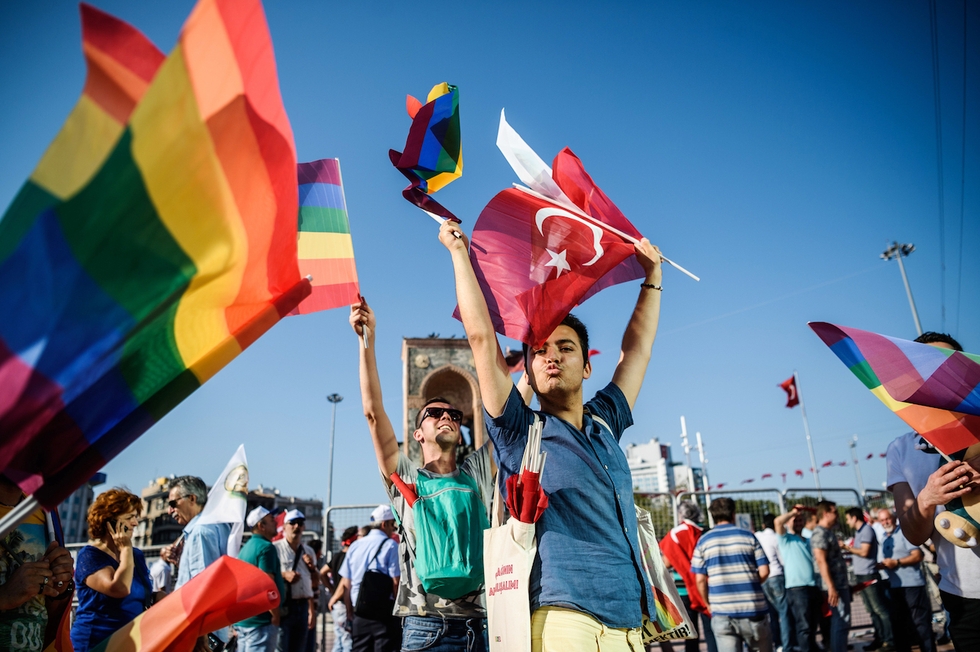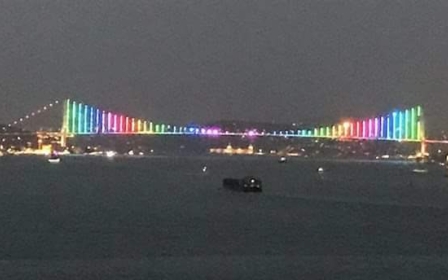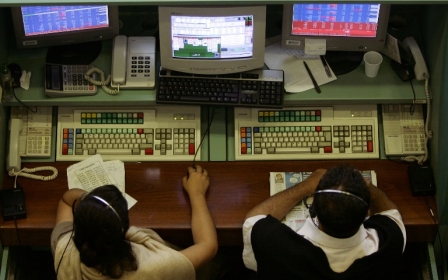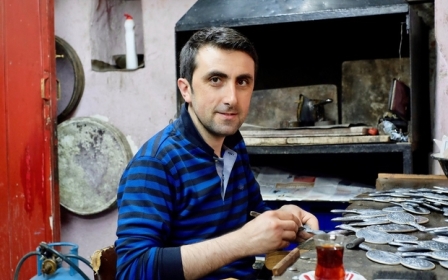Organisers vow to hold Istanbul Gay Pride march in spite of ban

Organisers of the annual Gay Pride march in Istanbul insisted on Saturday that it would go ahead in the city's Taksim Square in spite of a ban by the authorities over "safety concerns".
Activists had called the parade for 5pm (1400 GMT) on Sunday, but the city governor's office said that Taksim was not an official rallying ground.
"There will be no permission for a demonstration or a march on the said date considering the safety of tourists in the area... and public order," it said in a statement.
City officials also said there had been no formal application to call a rally and that they only heard of the event through social media.
Lara Ozlen from the organising committee of the Gay Pride parade, said the governor's office statement was a "lie".
"They had known about our plan long before because we presented a petition weeks ago," Ozlen said.
City authorities also urged citizens to ignore calls to participate in the parade and to abide by the security forces' warning.
Last year, organisers were denied permission to march, with the city tense over bombings blamed on the Islamic State group and Kurdish militants, sparking anger from gay rights activists.
Riot police fired tear gas and rubber bullets to disperse protesters who defied the ban.
This year, the march coincides with the first day of the Islamic feast of Eid al-Fitr, and far-right groups have warned on social media against the parade.
Thousands took part in previous Istanbul pride marches, which were among the most significant LGBT events in the mainly-Muslim region.
The news of the ban follows similar controversy when Istanbul’s first Bosphorus Bridge, renamed the 15 July Martyrs’ Bridge after last year’s failed coup attempt, was lit up on 18 June in the colours of the rainbow, a symbol adopted by the LGBT movement.
The lighting of the bridge was seen as a nod to Istanbul Pride Week, starting on 19 June and running through 25 June, although no official statement to this effect was released by any department in charge of the bridge.
The Istanbul municipality was quick to respond and deny responsibility for the lighting. In a series of messages on Twitter, the municipality stated the bridge is not part of its jurisdiction, including its lighting.
The Istanbul municipality said the bridge falls under the responsibility of the national highway authority, which operates under the transport ministry.
In its final message, the municipality said the issue had been resolved.
Debate raged on social media and in the media over the weekend as to whether lighting up the bridge in rainbow colours was intentional and the motives behind it.
Some were quick to point the finger at Gulenists, followers of the US-based Muslim preacher Fethullah Gulen whom the authorities accuse of being behind last July's coup attempt.
One prominent Turkish columnist even asked if this was retaliation by Istanbul's beleaguered mayor, who on Friday saw his son-in-law arrested for the second time for alleged financial links to Gulenists.
Others said the bureaucrats in the highway administration probably had no clue that the rainbow colours symbolised the LGBT movement.
The Istanbul Pride march was first held in 1993 but really took off in 2003, reflecting Turkey's growing acceptance of diverse views and lifestyles.
Although unimaginable in most of Anatolia, the event flourished in Turkey's major urban centres with the Istanbul march drawing ever larger crowds in the city's most famous gathering spot, Istiklal Avenue, since 2003.
Istanbul Pride events attracted tens of thousands of participants from 2010 to 2014, with the Turkish authorities even earning praise from the European Union in 2014 for ensuring that the large gathering was held without incident despite it coinciding with the Muslim holy month of Ramadan.
New MEE newsletter: Jerusalem Dispatch
Sign up to get the latest insights and analysis on Israel-Palestine, alongside Turkey Unpacked and other MEE newsletters
Middle East Eye delivers independent and unrivalled coverage and analysis of the Middle East, North Africa and beyond. To learn more about republishing this content and the associated fees, please fill out this form. More about MEE can be found here.




